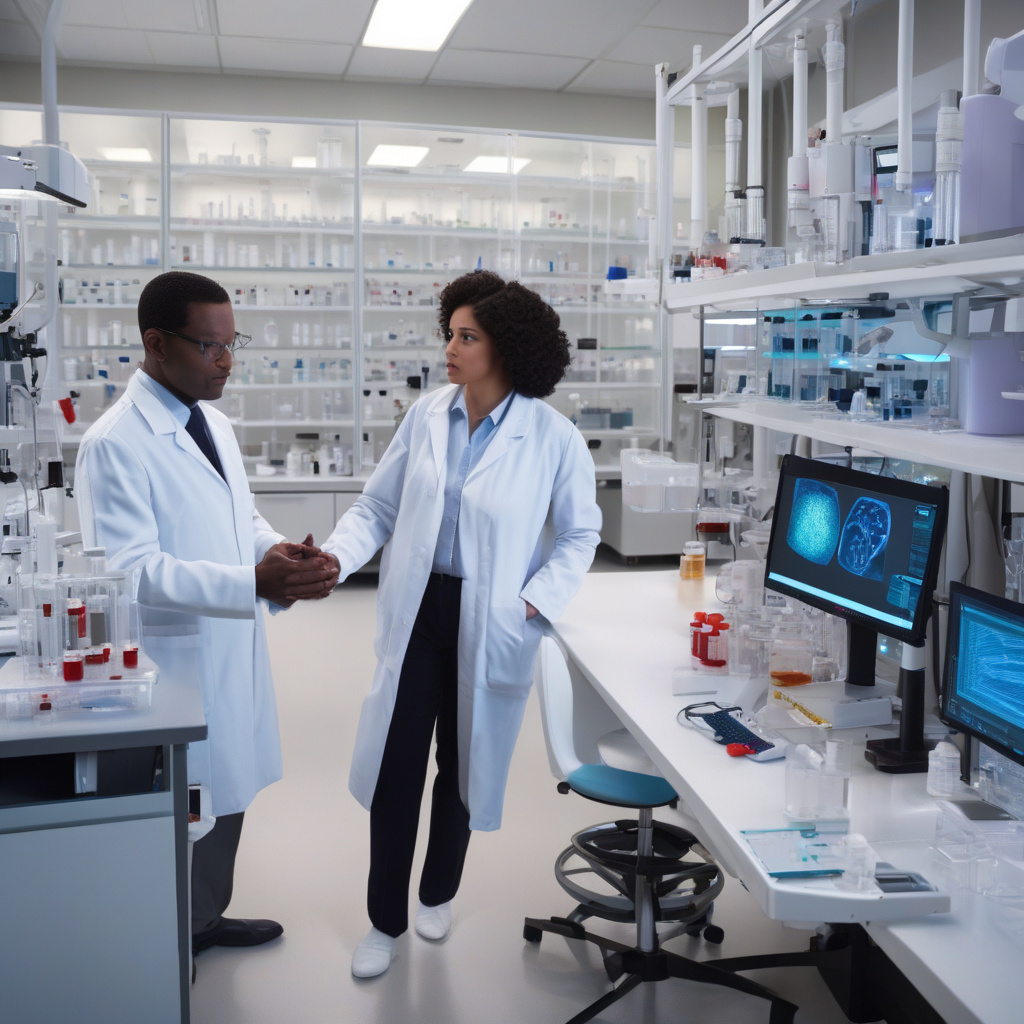Liverpool Scientists Develop Low-Cost AI Blood Test for Alzheimer’s
Liverpool scientists have made a groundbreaking advancement in the field of Alzheimer’s diagnosis. A new handheld test has been developed that can detect Alzheimer’s biomarkers in blood within minutes, offering the potential for earlier and more affordable diagnosis worldwide. This innovative approach utilizes artificial intelligence (AI) to analyze blood samples quickly and accurately, providing a cost-effective alternative to current diagnostic methods.
Alzheimer’s disease is a debilitating condition that affects millions of people globally. Early detection is crucial for improving patient outcomes and implementing timely interventions. However, existing diagnostic techniques such as brain imaging and cerebrospinal fluid analysis can be invasive, expensive, and often inaccessible to many individuals, particularly in low-resource settings.
The development of a low-cost AI blood test for Alzheimer’s represents a significant step forward in addressing these challenges. By leveraging the power of AI technology, researchers have identified specific biomarkers in the blood that are indicative of the disease. This allows for non-invasive and rapid screening, enabling healthcare professionals to detect Alzheimer’s at an earlier stage and initiate appropriate treatment plans.
The portability of the handheld device means that it can be used in a variety of healthcare settings, from hospitals to remote clinics. Its simplicity and efficiency make it an attractive option for large-scale screening programs, particularly in regions where access to specialized diagnostic facilities is limited. This could potentially revolutionize the way Alzheimer’s is diagnosed and managed on a global scale.
In addition to its diagnostic capabilities, the AI blood test offers a more cost-effective alternative to existing methods. By streamlining the diagnostic process and eliminating the need for expensive equipment, this innovation has the potential to significantly reduce the financial burden associated with Alzheimer’s diagnosis. This could make it more accessible to a wider population and facilitate early detection for those who may not have had access to traditional diagnostic pathways.
The implications of this research extend beyond the field of Alzheimer’s disease. The successful development of a low-cost AI blood test highlights the broader potential of AI in revolutionizing healthcare diagnostics. By harnessing the power of machine learning and data analysis, researchers can uncover valuable insights from biological samples quickly and accurately. This not only enhances our understanding of complex diseases but also paves the way for more efficient and affordable diagnostic tools across various medical specialties.
As Liverpool scientists continue to refine and validate this innovative technology, the prospect of a low-cost AI blood test for Alzheimer’s becomes increasingly promising. With further research and clinical trials, this breakthrough has the potential to transform the landscape of Alzheimer’s diagnosis and set a new standard for accessible and effective healthcare worldwide.
In conclusion, the development of a low-cost AI blood test for Alzheimer’s by Liverpool scientists represents a significant advancement in the field of diagnostic medicine. By offering a quick, affordable, and non-invasive method for detecting Alzheimer’s biomarkers, this innovation has the potential to revolutionize the way we approach the diagnosis and management of this devastating disease. With continued research and investment in AI-driven healthcare solutions, we can look forward to a future where early detection and intervention are within reach for all. #LiverpoolScientists #Alzheimers #AIBloodTest #HealthcareInnovation #GlobalHealthcare
